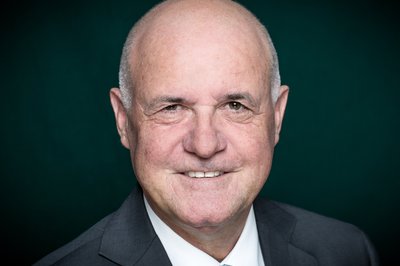Securities Dealers – Impact of the New Financial Market Regulation
- New categorization as "Securities Houses"
- Licensing cascade
- Information requirements
1. Current Regulatory Regime
Swiss based securities dealers must have a license and are subject to the prudential supervision of the Swiss Financial Market Supervisory Authority (FINMA). The license is a requirement for and covers various forms of securities trading – including trading in securities under the securities dealer's own name for the account of clients. Equally, securities dealers located abroad also must have a license from FINMA if they employ persons in Switzerland who permanently and on a professional basis, act for the foreign securities dealer or if they want to become a member of a Swiss exchange. The regulatory framework for the supervision of securities dealers currently includes the Stock Exchange Act (SESTA), the Financial Market Supervision Act (FINMASA) and their implementing rules. Other applicable provisions are included in selected FINMA circulars (such as, inter alia, the FINMA-Circular 2013/8 – Market conduct rules.
2. Overview of the New Financial Market Regulation
The major part of the SESTA-provisions shall be transferred to the new Financial Institutions Act (FINIG) and the new Financial Market Infrastructure Act (FinfraG). SESTA may be repealed after the entry into force of FINIG.
Going forward, securities dealers will be named "securities houses." The draft FINIG defines securities houses as market participants (i) who are acting in a professional capacity, (ii) who trade securities in their own name but for the account of their clients, (iii) who trade securities short-term for their own account, (iv) who are mainly operating in the financial market and could thereby put the functionality of the financial market in danger (systemic relevance), or (v) trade as members of a trading venue. Also, under FINIG securities houses are professional market participants who trade securities for their own account and act as market makers. The reason behind the name change and the equal treatment in many respects compared to asset managers in general under FINIG is that the main business areas of securities houses are agent trades and the engagement in a qualified form of asset management by entering into respective transactions for the account of third party clients. The term "securities house" will better reflect these activities.
A license to operate as a securities house will automatically provide the licensee with the license to operate as a qualified asset manager, but not as a bank (cascade).
The securities houses' derivatives business will be subject to new rules to be introduced by FinfraG. Clearing obligations (across asset classes), risk mitigation duties and transparency / reporting rules will apply. Noteworthy is that the details of the covered OTC derivative trades / products are defined in delegated regulation.
The provision of financial services by securities houses will be subject to the new Financial Services Act (FIDLEG). In offering financial instruments (as defined in FIDLEG) to and trading them with third party clients requires that the securities houses comply with all the detailed conduct requirements, disclosure rules and organizational obligations to guarantee client protection and the protection of the financial market.
3. Selected Key Points for Securities Dealers
Securities dealers with an existing license as a securities dealer are not required to have a new license as securities house under FINIG. They need, however, to comply in full with FINIG rules within one year after its implementation. Whereas SESTA does not limit the legal forms available for securities dealers (even natural persons are theoretically considered under SESTA), FINIG will allow only entities incorporated as a commercial company (Handelsgesellschaft) to be classified as securities houses in the future. This classification means that securities dealers with an existing license – that are not incorporated as a commercial company – will either need to change their legal form within the given period or they will cease to hold a valid license after the 1-year period has elapsed. This requirement is particularly relevant for securities dealers currently as a cooperative (Genossenschaft).
Securities houses can become clearing members of licensed clearing houses (central counterparties) and offer, inter alia, derivatives clearing services (in line with FinfraG rules) to smaller market participants in the market.
Information and conduct obligations that have been subject to the Code of Conduct for Securities Dealers (2008) published by the Swiss Bankers Association (self-regulation), will be incorporated in FIDLEG with stricter rules, especially with regards to information requirements prior to trading / offering.


